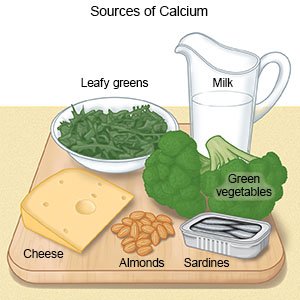Growth Hormone Deficiency in Adults
Medically reviewed by Drugs.com. Last updated on Aug 4, 2025.
What is growth hormone deficiency (GHD)?
GHD is a condition that prevents your pituitary from making enough growth hormone. The pituitary is a gland in your brain. Growth hormone makes children and adolescents grow taller. Throughout life, it helps increase muscle mass and strengthens bones. Growth hormone also helps the liver and pancreas work correctly and stimulates the immune system.
What causes or increases my risk for GHD?
GHD usually starts in childhood and continues into adulthood. Any of the following may increase your risk for GHD that did not start in childhood:
- A tumor that affects your pituitary and other nearby glands
- Surgery or radiation therapy to treat a tumor
- An injury to or other problem with the pituitary gland
- Traumatic brain injury (TBI)
- A subarachnoid hemorrhage (bleeding around the brain) or ischemic stroke (blood clot in the brain)
- Infection in your central nervous system
What are the signs and symptoms of GHD?
- Weak bones, fractures, or osteoporosis
- Loss of muscle mass or strength
- Increase in body fat, especially in your abdomen
- Low energy, less sweating than usual, or not being able to exercise for as long as usual
- Trouble concentrating or paying attention, memory problems, or slow thinking
- Depression, anxiety, or not wanting to be social or spend time with others
- Nerve or heart function problems
- Trouble using carbohydrates correctly or more low-density lipoprotein (LDL)
- Problems keeping your body temperature stable
How is GHD diagnosed?
Your healthcare provider will ask about health conditions or injuries you have had. Tell him or her about any physical changes you have noticed, such as less muscle or more fat than before. Tell him or her if you are having trouble exercising for more than a few minutes at a time. He or she may also ask if you have a family history of hypopituitarism or GHD. He or she will ask about your symptoms and how long you have had them. You may need any of the following:
- Carbohydrate metabolism means testing to see if your body can digest and use carbohydrates correctly. Insulin problems from GHD can keep you from storing energy from carbohydrates well.
- Blood and urine tests are used to check your hormone and lipid (fat) levels. The amount of insulin-like growth factor 1 (IGF-1) may also be checked. Low IGF-1 compared with others your age along with pituitary gland problems can be a sign of GHD.
- CT scan or MRI pictures of your brain are used to examine tissue and blood vessels, and check for a brain tumor. You may be given contrast liquid before the pictures are taken to help your brain show up better in the pictures. Tell the healthcare provider if you have ever had an allergic reaction to contrast liquid. Do not enter the MRI room with anything metal. Metal can cause serious injury. Tell the provider if you have any metal in or on your body.
- Hormone challenge tests are done to check if your hypothalamus, pituitary, and other glands are working properly.
How is GHD treated?
Treatment depends on the cause of your GHD, and when it started.
- Medicine may be given to treat a brain injury. Medicine called recombinant human growth hormone (rhGH) may be given. You may have received this medicine as a child and continued through puberty. Your healthcare provider may recommend that you continue to receive this medicine if you are a young adult.
- Radiotherapy or surgery may be used to treat a tumor.
- Hormone replacement is given to replace hormones that are low. The hormones may be given as a pill, injection, or skin patch.
What can I do to manage GHD?
- Eat healthy foods that are high in calcium and vitamin D. Calcium and vitamin D work together to keep your bones strong. Good sources of calcium are milk, cheese, broccoli, tofu, almonds, and canned salmon and sardines. Vitamin D is in fish oils, some vegetables, and fortified milk, cereal, and bread. Vitamin D is also formed in the skin when it is exposed to the sun. Ask your healthcare provider how much sunlight is safe for you.

- Exercise regularly. Ask your healthcare provider about the best exercise plan for you. Weightbearing exercise for 30 minutes a day on most days of week can help build and strengthen bone. Your healthcare provider may also recommend exercises to build muscle, such as weightlifting. Activities such as Tai chi or yoga can help improve your balance.

When should I call my doctor?
- You have new or worsening symptoms.
- You have questions or concerns about your condition or care.
Care Agreement
You have the right to help plan your care. Learn about your health condition and how it may be treated. Discuss treatment options with your healthcare providers to decide what care you want to receive. You always have the right to refuse treatment. The above information is an educational aid only. It is not intended as medical advice for individual conditions or treatments. Talk to your doctor, nurse or pharmacist before following any medical regimen to see if it is safe and effective for you.© Copyright Merative 2025 Information is for End User's use only and may not be sold, redistributed or otherwise used for commercial purposes.
Further information
Always consult your healthcare provider to ensure the information displayed on this page applies to your personal circumstances.
